My Journey to a Limitless Life
Every Journey Starts With One Brave Step
Building an iron mindset
This is my life story…
I grew up in a very peculiar family. Since I was a little kid, my parents enrolled me in many extracurricular activities. At 6 years old, I was in the 1st grade, having piano, violin, English and French classes after school.
It took me a few years to realise that I didn’t live a normal life when I asked my schoolmates what they were doing after school. I was almost furious when I went back to my parents and asked them,
“Why are all the kids from school allowed to play video games after school, and I have to work so hard?”.
My parents’ answer will stay with me for the rest of my life.
“Because you are an Ungureanu” (my surname), they said, “and you will succeed where others fail”
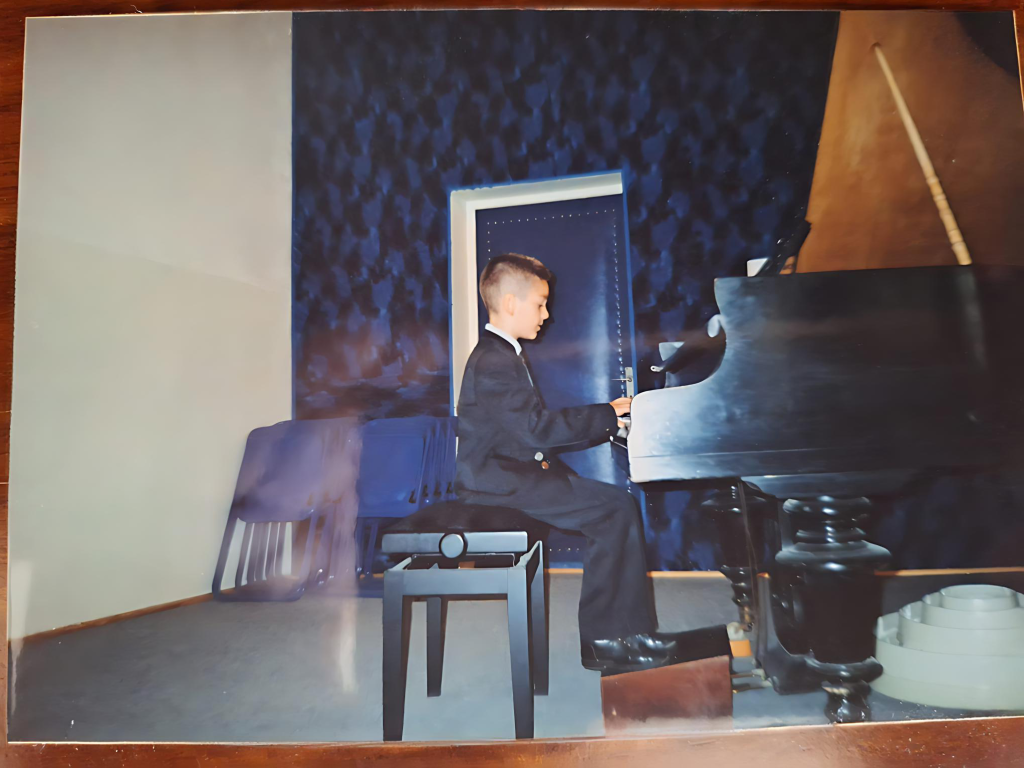
No cause is lost if there is but one fool left to fight for it
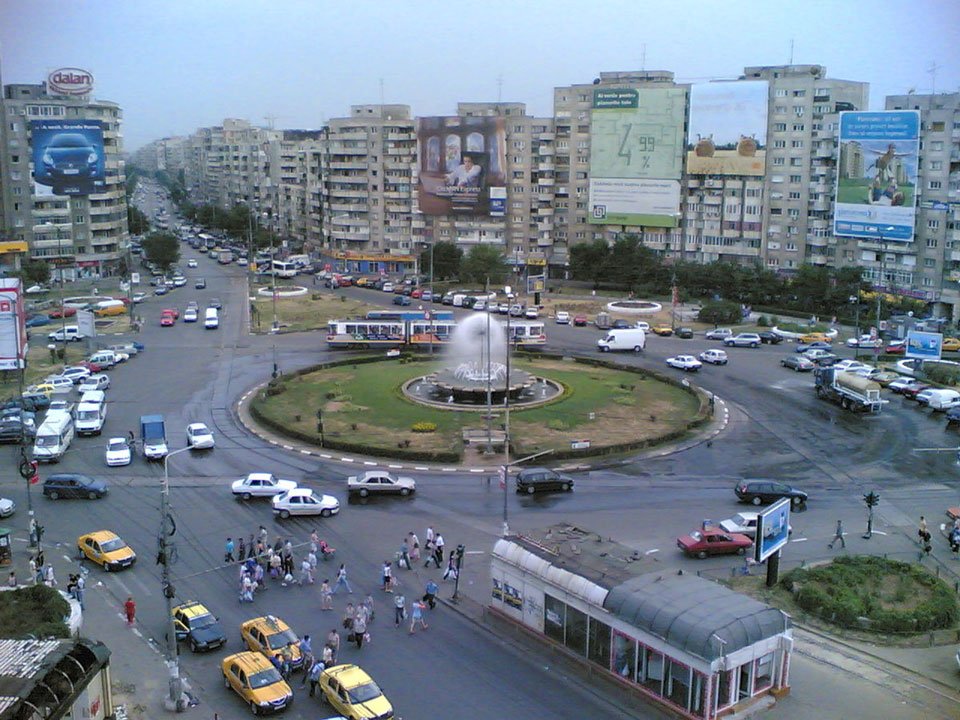
Growing up in post-communist Romania in the late 90s and early 2000s wasn’t a walk in the park. I had a dream about travelling around the world and moving from city to city, country to country, every other month.
However, due to cultural limitations, I was laughed out of the park every time I shared this dream with people because the concept didn’t exist at the time.
Nevertheless, I told myself over and over again that if nobody had done it before, I would invent it myself.
I have no limitations.
I started looking for skills which are cross-culturally relevant, and I figured out that a few professions are valued and useful in any country in the world. That was the reason why I applied to study medicine.
I never stopped for a second to ask myself if I liked it or not, as for me, the only thing that mattered was the objective, and I was not going to allow anything to stand in my way.
That being said, after the first year, I got close to a resident (doctor still in training), and he saw something in me.
“This is not a profession for you, but you are stubborn, so you won’t listen to me”
The resident offered to give me a real insight into the profession, and he allowed me to shadow him for a while. I was very excited about this opportunity, and for the next 6 months, I was in the hospital on 24-hour shifts about 2 times a week.
I learned very rapidly that when you are a doctor, you are surrounded at all times by pain and misery, and to be good at your job, you’ll need to decrease considerably your sense of compassion.
I saw the person I needed to become in order to do that job well, and I didn’t like it. It was a heartbreaking realisation as a big chunk of my identity was about being a doctor, but it was time again to look at my life through different lenses.
Life can lead you in mysterious ways
A passion I’ve explored since my early years of high school was photography. It wasn’t the traditional way of capturing nice shots, but I wanted to create photos that would tell a story.
That passion pushed me towards learning Photoshop very well, and I started an Instagram account to post my work.
A few months later, I was applying for a job as a web developer at a small marketing firm and thought it could be useful to share my Instagram as well.
“Throw everything at the kitchen sink, right? You never know what is going to stick.”
At least that’s what I thought at the time. The interview went well, but eventually, I didn’t get the job.
However, 2 weeks later, I received a call from the Director saying that he was considering me for a Graphic designer role and invited me to another interview. This time, I got the job, and I was once again back on track with my dream.

An experience can completely change the way you see the world
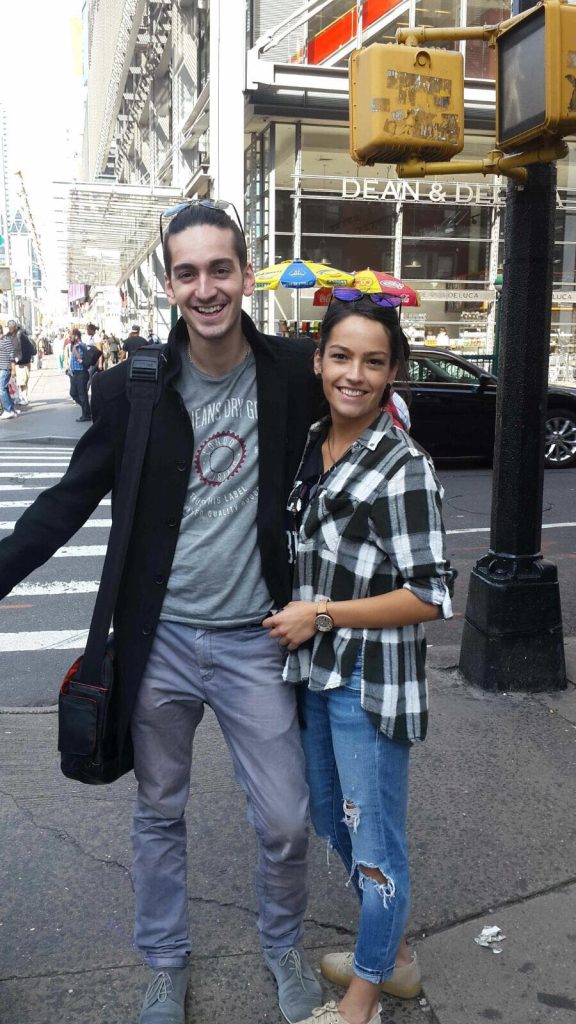
Growing up in a lower-middle-class family in Romania keeps the bill collectors away from your door, but sure as hell won’t allow you to have too many leisure activities.
By the time I was 17, I had only left the country twice, only by car, so my experience with the outside world was limited. The idea of travelling around the world was a dream, but a faraway one, as no one I knew had ever done it.
My sister decided to move to the US when I was 18, and due to the strict regulations in terms of immigration, she couldn’t leave the country anymore.
6 months after that, I decided to pay her a visit for 3 weeks, which was, at the time, the boldest thing I’ve done to date. Never been on a plane before, or travelled on my own, and more than that, I could barely speak English.
It’s funny how one could be so confident about something when they plan it, but when the day comes to actually do it, then it starts to feel real. It was my first time on a plane, let alone flying for 10 hours across the Atlantic.
The experience I had in the US was life-changing. I discovered that struggling isn’t the default or should be for the human condition, and I could find better opportunities in a different country.
“I have always made the argument that immigrants to some extent are more patriotic than even the people that are born here because they don’t take things for granted.”
Sebastian Stan: Vanity Fair
Soon after my return to Romania, I knew that I needed to go somewhere, so given the strategic advantages, I moved to London. And here is where my nomad story begins.
Sometimes a bad motivation is better than no motivation at all
From an early age, I had a complicated relationship with my parents. Due to our different life models, we couldn’t find a common ground for a long time.
I found them to be overprotective and controlling, so my rebellious nature gradually led out to walk my own path.
I recently did a Big 5 personality test, and it turns out that I’m the most disagreeable person in 1000 people.
Disagreeable people are very competitive and blunt. They also tend to be very aggressive in certain situations.
It’s not predatory aggression, and certainly not personal, they see obstacles on the way and attack them, regardless of what kind of obstacles they are.
Going back to the story, you can imagine now how I responded to them.
I didn’t want to move out of the house – I needed that, and it happened to be further away than originally anticipated.
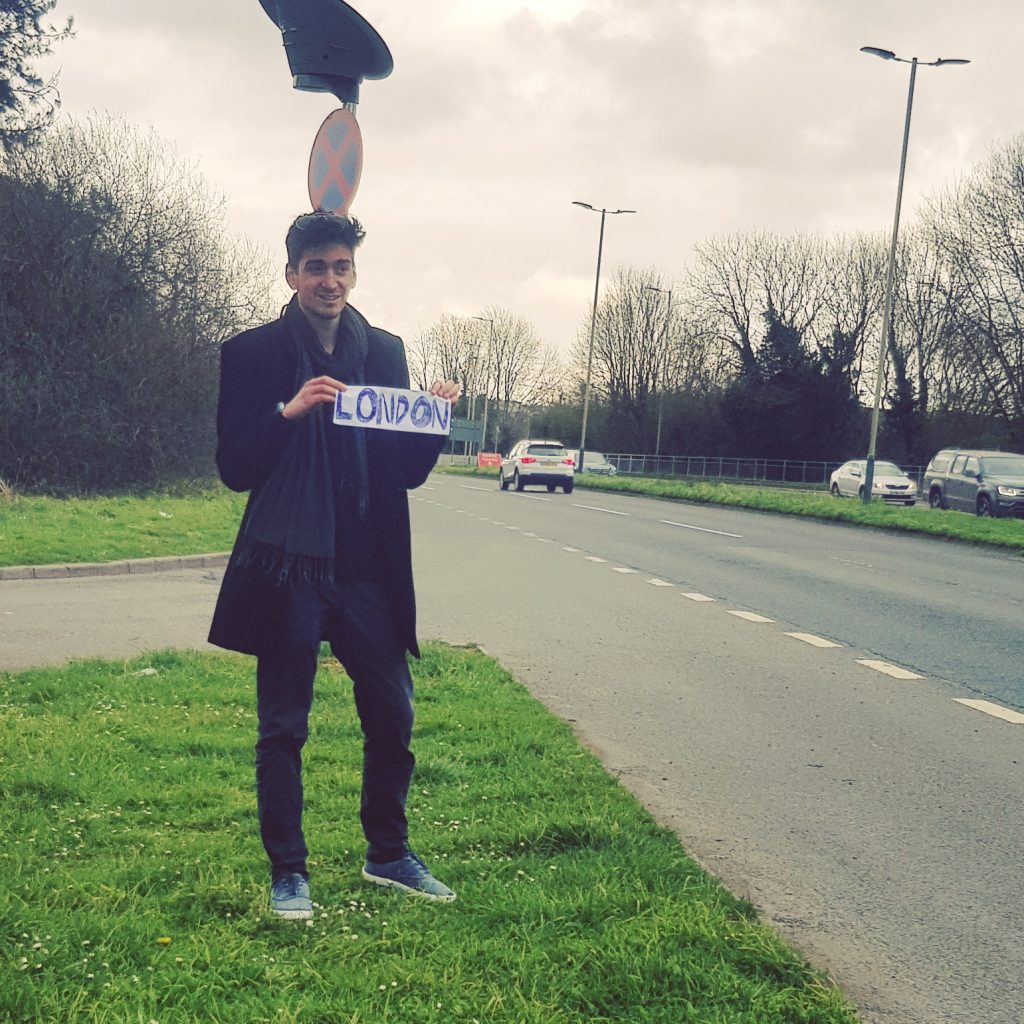
Moving to London was a new beginning for me, but more than anything else, I had a very strong motivation. I had to make it work, because it wasn’t a matter of “it would be nice” or “I should”.
I knew for a fact that this cannot not work and I would jump from a building before going back to live with my parents. “Come back with your shield, or on it*”
Footer note: *The general meaning was “victory or death,” the significance being that victorious warriors returned home carrying their shields; the dead were borne home on them. Only those who fled the battle, shedding themselves of weapons and equipment to hasten their flight, came home without their shields.
When nothing seems to work, the answer is outside of your ways
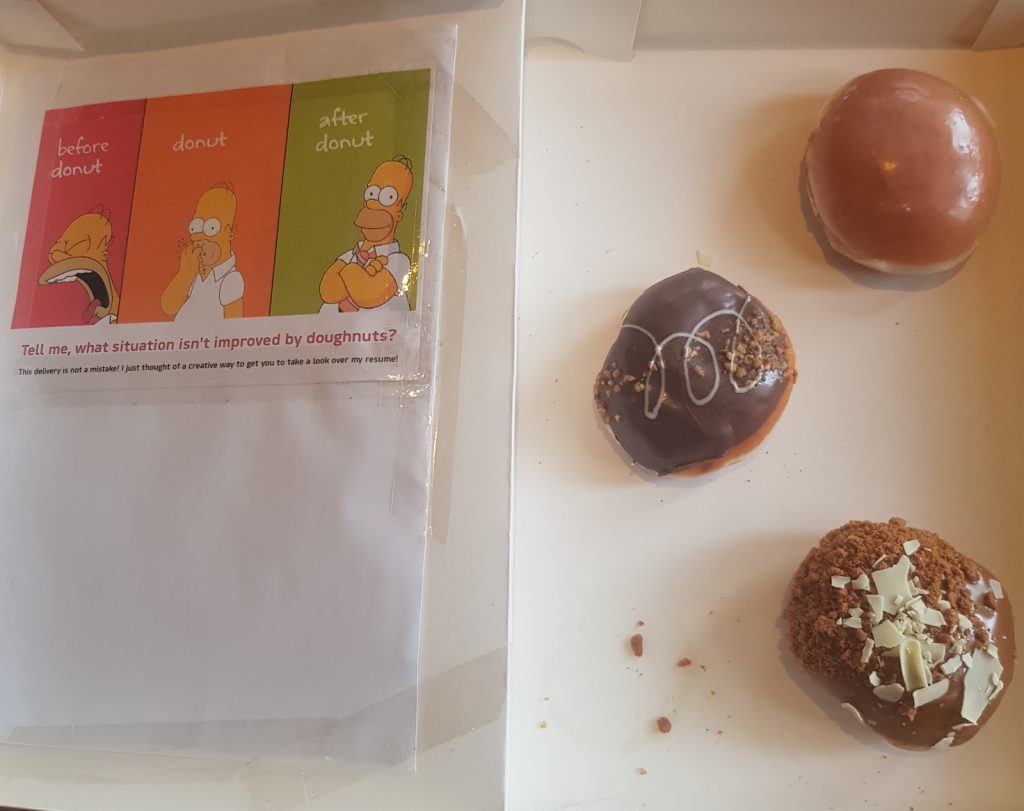
London made it difficult for me to kick-start my career, but I’m not the one to shy away from a challenge.
I got to a point where I was delivering my CV in a box of doughnuts to make myself seen, but I was going nowhere.
I had to (almost literally) knock on every door in the city until someone gave me a job.
When I got my first job in London, I was almost crying. Thought that was the beginning of a long journey into the corporate world, but I was about to be proven wrong.
Fortis fortuna adiuvat*
I was always a very social person. Even though as a kid I was a bit timid, I’m definitely extroverted – being around people fills me up with energy.
The first few months of my new job went great. I was progressing rapidly and got a decent promotion by the end of the year. Things were looking very optimistic – until the lockdown started.
I was the kind of person who couldn’t wait for offices to reopen – but every week, we kept hearing that our work-from-home phase had been extended for another 2 weeks.
Things got better during the summer, but from September onwards, there was strong evidence of a second wave, and everything gradually started to close again.
I had had it. I was at the end of my rope and felt like there was no way out of this hell.
There was a saying I used to have – “If you must fail, might as well do it with style” – which roughly translated to: If the end is near and I have to go, I might as well pull one last stunt before I do.
I brainstormed the biggest stunt I could pull – something eccentric, but technically possible. Not long into the process, I came up with the idea to move to Mauritius.
I had to leave my place in London because I couldn’t afford the rent anymore. I didn’t have a laptop, so I carried my entire PC setup with me (including a screen). I didn’t tell anyone at work what I was doing.
I was moving to a country halfway around the world, with no contacts, and no idea what I was going to do there.
*Footer note: The phrase translates to “Fortune favors the brave,” a reminder from Roman times that those who act boldly are more likely to succeed. It was often used as a battle cry, reinforcing the belief that courage attracts luck – not passivity.
The night is darkest just before the dawn
What I originally thought was a one-time thing turned into a lifestyle. When I moved to Mauritius, I didn’t think it through long-term – I was just taking it one step at a time.
On the outside, everything looked perfect. I was living free, two minutes from the beach, while my friends were locked inside small apartments back in London.
I honestly thought I managed to outrun my demons, but a wise person told me once,
“there is no place to hide when you’re running from yourself”
I didn’t have close friends around. Most people were from a completely different culture, and they saw me as “the rich foreigner” – someone who could never understand their struggles.
I felt like an outsider everywhere I went.
Alone in paradise.
Then the breakdown came.
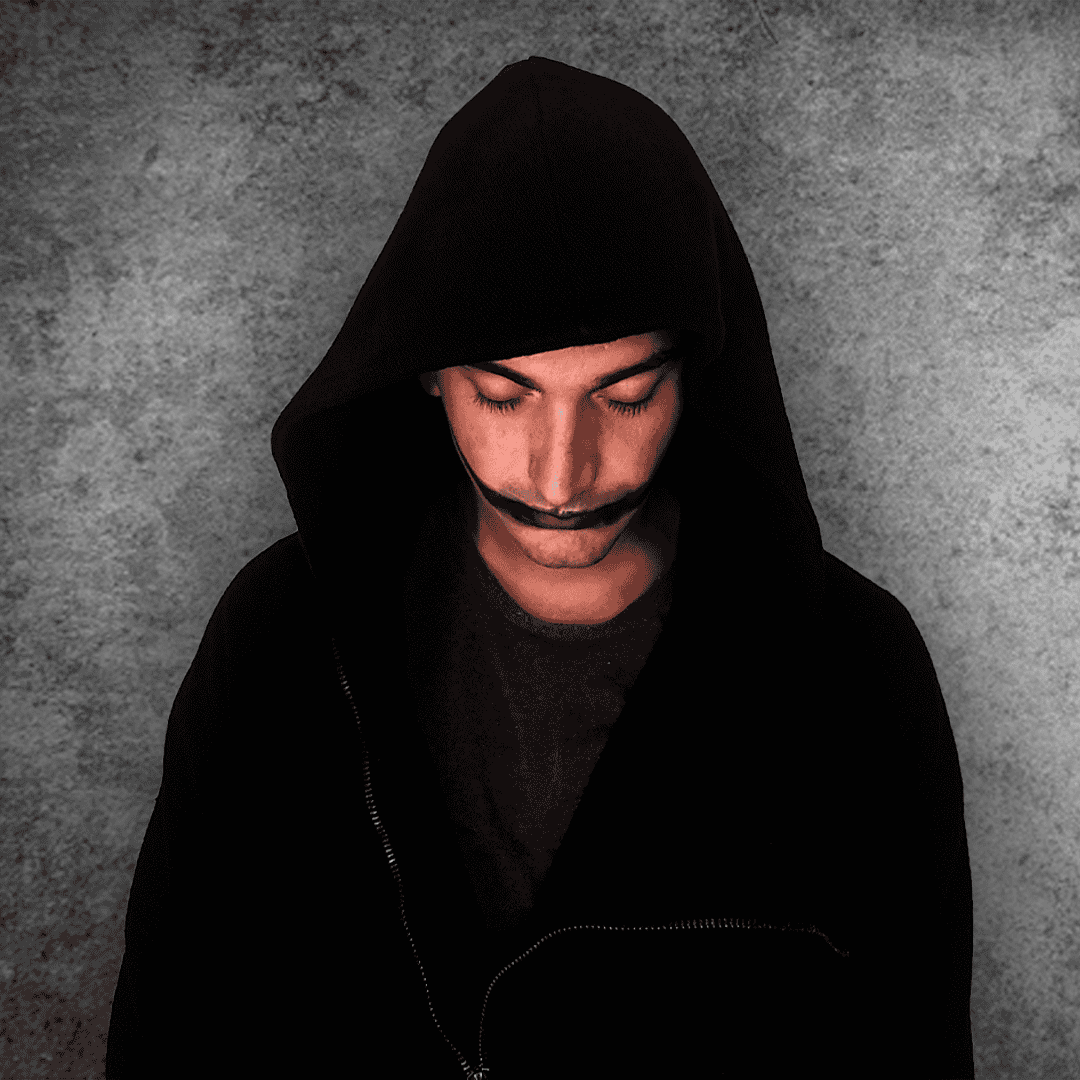
It started with anxiety, then the emptiness started to feel palpable. I had reached the place I dreamed of, but I felt hollow inside.
I thought success would fill something in me, but it didn’t. I felt guilty for not feeling fulfilled.
Like I was ungrateful.
And yet, I couldn’t shake the sense that life had already shown me everything it had to offer – and none of it felt worth it.
I was drinking heavily by then – every day, usually tipsy by 3 or 4. Alcohol became my crutch, my escape from the weight in my chest.
And it worked… until it didn’t. The highs wore off. The lows got lower. I was spiralling – my self-worth vanished, my work collapsed, and I couldn’t find the energy to care.
At my lowest, I tried to claw my way out. I stopped drinking for a few weeks. I started running. I even did a bit of therapy. I thought I was finally back on track, but I didn’t know at the time how far away I really was from the track…
The day I realised I never came back...
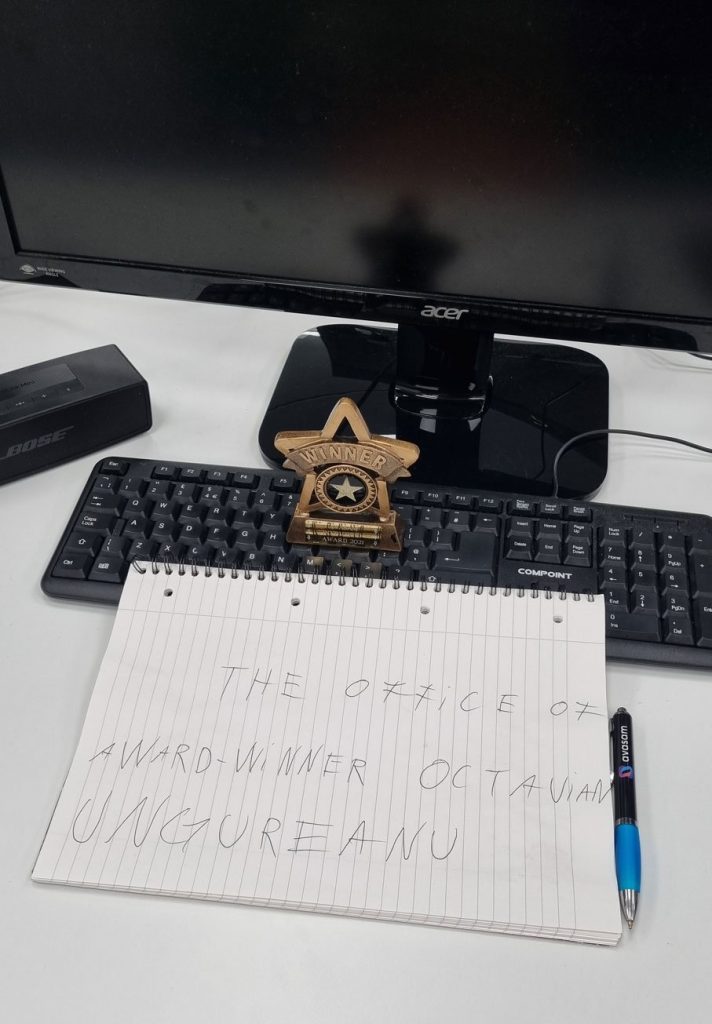
The time had come to return to London. Lockdown was lifted, offices were reopening, and part of me was excited. I packed my things with real enthusiasm – ready, I thought, to return to my “normal” life.
I pictured a structure, a job, a steady group of friends. The comfort of a familiar city and a familiar routine. That version of life – 9 to 5, week to week – was supposed to bring stability, maybe even pride. But the moment I stepped back into it, I felt like a stranger in my own life.
I asked to return to the office full time, hoping it would help ground me – help me forget everything that had happened and just slide back into place. I wanted to mark those wild months in Mauritius like a photo in an album: beautiful, but over. Instead, I sat at my desk each day with a quiet voice in my head whispering, This isn’t it.
No one around me understood. How could they? We wanted different things.
Their version of success didn’t excite me, and mine probably looked foolish to them.
A few months later, my sister moved to Miami and invited me to visit. My job approved a remote work request, and I left for three months. I didn’t go searching for answers – I just wanted to see: was this nomadic pull a passing phase… or something deeper?
While I was away, I didn’t feel changed. Most of the time, you don’t feel the change when you’re in it; you feel it when you return home.
When I returned to London, there was something that felt off again. The routine was heavier. The office, duller.
Something had shifted. Not just my lifestyle, but my perception of what was possible.
I had done things I never believed I could – and now that I knew that, I couldn’t go back.
Those who jumped can't explain and those who haven't, won't understand
I know what you’re thinking:
“Skydivers are those crazy people who throw themselves out of a perfectly good aeroplane just for the adrenaline rush.”
Yeah – I thought the same thing.
After coming back from Miami, I was hungry for new experiences – not necessarily because I was chasing adrenaline, but because I wanted to see what kind of life I could carve out for myself.
Skydiving had always been somewhere in the back of my mind. It intrigued me because it’s one of those things people are genuinely terrified of. Most will never try it, and the ones who do usually treat it as a once-in-a-lifetime thrill.
That made it interesting.
I was never drawn to tandem jumps – they always felt too commercial, too passive. Like riding a rollercoaster where someone else does all the work. I didn’t want the packaged version of bravery, I wanted something real, something that looked impossible and felt uncomfortable, something that would make people think, “Wow, he did that.” I wanted to do something where my safety is my own responsibility, not someone else’s.
I found a Facebook group and learned that I could get licensed and start jumping solo. It sounded more serious, more challenging – and in that moment, that’s all I cared about. The truth is, I wasn’t looking to face my fears. I was looking for a shortcut to being perceived as fearless.
When I got to the dropzone, everything hit harder than expected. I was terrified – not in the exciting way people talk about fear, but in the quiet, desperate way that makes you want to disappear. All I could think about was getting it over with. I focused on the technical stuff – the exit, the pulls, the landing – just to keep my mind from unravelling. I didn’t even enjoy the jump. I wasn’t present. I was just surviving it.
But that’s the thing about skydiving – you can’t fake your way through it. You’re either in or you’re out. The fear strips away any performance. You’re left with nothing but yourself.
That’s when I realised something uncomfortable: I wasn’t brave. I was terrified and ashamed of being terrified. I didn’t want to face my fear – I just wanted to look like I had.
My instructor said something that stayed with me after all this time: “Skydiving isn’t about being bold. It’s about not giving up.”
At first, I didn’t get it. I thought this whole thing was about guts. It took me a while to realise that the real challenge is to be afraid and keep going anyway. That’s what separates people who grow from those who fold.
By the end of the training, I wasn’t trying to prove anything anymore. I had met myself somewhere between the plane and the ground. And once you’ve done that – even briefly – the idea of going back to a life that doesn’t challenge you feels empty.
A life I didn't know I was looking for
I didn’t move to the Algarve because I had a vision; I moved because Junior, my skydiving instructor, had an apartment there and offered it to me.
It was close to London, the logistics made sense, and after everything I’d been through, it felt like a comfortable transition.
Truth be told, it wasn’t my first choice, but that’s the funny thing about life. Sometimes the places you don’t plan for are the ones that change everything.
The community I found there had a huge impact on me. For the first time, I was surrounded by people who thought like me – curious, adventurous, and willing to live life beyond the usual scripts.
It was easy to make friends. Conversation flowed naturally. There were people building projects, travelling often, redefining work and life on their own terms.
And for once, I didn’t feel like the outsider.
I didn’t have to explain why I wanted more from life. I wasn’t the only one trying to live differently – I was just one of many.
It was the first time I had ever looked at the people around me and thought: I want to be more like them.
But then, my old life called me back indefinitely. I got a job in London that paid much better, but it required me to go to the office on a full-time basis.
The quiet return to the wrong life
For six months, I played the part.
I was convinced that this was the end of my travelling chapter, that I finally had to start adulting.
It’s interesting how we all carry this pre-defined idea of what life should look like.
And any drift from that script eventually makes us feel like we’re just on a break – that we’ll have to “go back” at some point.
Have you ever been on an amazing holiday and, near the end, felt like you had to return to reality?
Why is that?
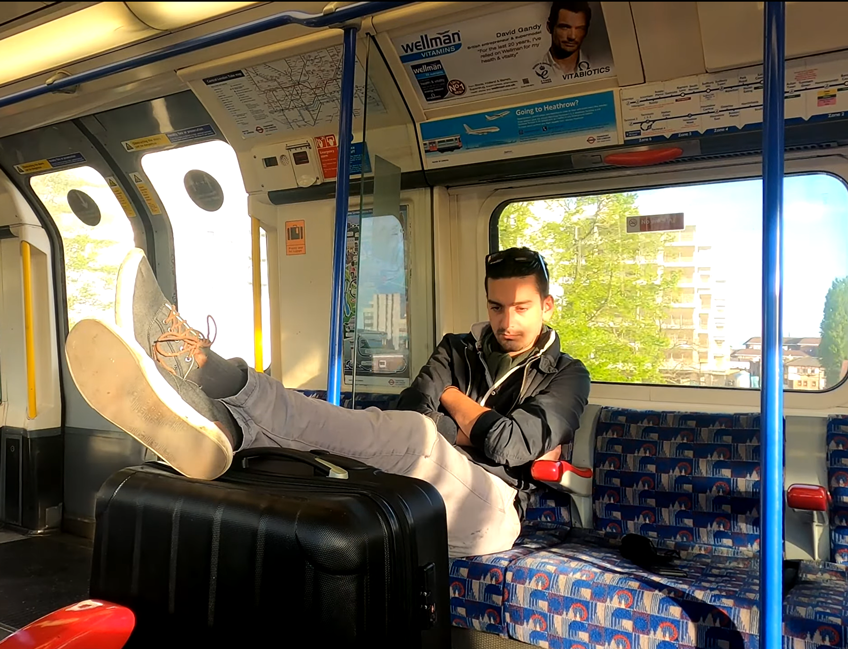
Who decided what reality even is? When did we quietly agree that it’s normal to live a life drained of everyday excitement?
There’s this constant demand to perform at an acceptable level – to pay our dues, to follow the path.
But for what?
To one day retire at 65 with a small pension, living in shared housing, replaying a handful of good memories while waiting for the end?
That idea scared me more than death. More than failure. More than anything else.
Going back to my story, it wasn’t long until I realised that this life in London doesn’t excite me anymore. The only problem is that this life was tied to my income, and turning it down could have severe consequences in the long run.
What should I do?
Live the best life you can or die in the process
You win either way
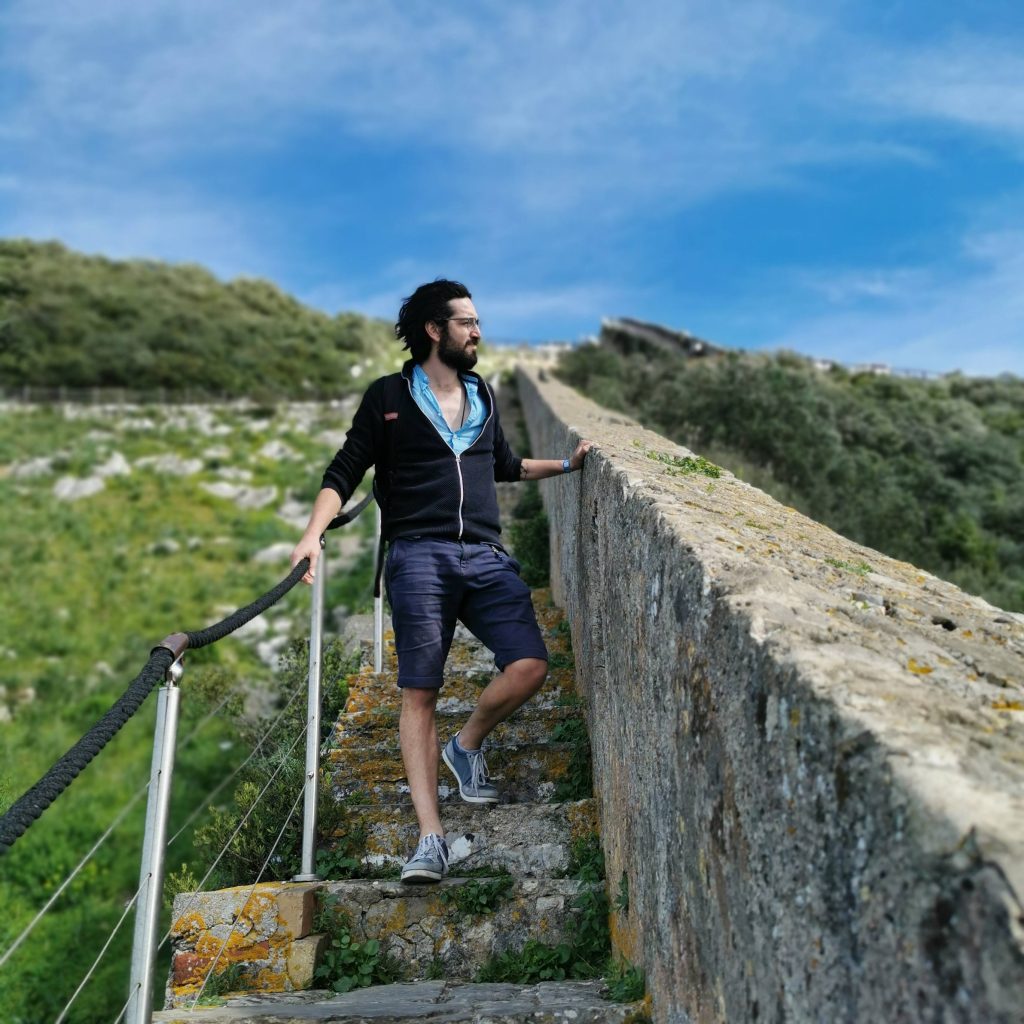
There are times in life when you know in your heart what you must do.
Then there is the other voice telling you how unrealistic that is. Or how you will definitely do it later.
“Someday” is a comforting word; it gives us the illusion of intention. But most of the time, it’s just a polite way of saying “never.” I knew that. I had said “someday” to myself enough times to recognise what it really meant.
So I made the decision: no more waiting. It was now or never. Act now, or carry the weight of regret quietly for the rest of my life. I quit my job, decided to go freelance, and moved back to the Algarve.
I wasn’t under the illusion that it was going to be easy. I was choosing instability, pressure, and a lot of unknowns, but I also knew that the only way this could work was if I gave it everything. No more distractions. No more weekend escapes that led nowhere. If I wanted a new life, I had to build it with my own hands.
And that meant letting go of the habits that had quietly held me back for years.
Binge drinking was one of them. On the surface, it was harmless fun, something everyone did, something I could laugh off. But deep down, I knew it was my way of avoiding things. It numbed discomfort. It gave me temporary confidence. And it always left me further away from the person I wanted to become.
So I made a quiet deal with myself: I would stop drinking until I signed my first client. It felt symbolic, a small sacrifice in exchange for clarity.
It took five weeks. Then it happened.
I signed my first client, a man who ran recovery programs for former addicts. We were talking about the project when he casually said, “One of the reasons I want to work with you is because you’re sober.”
I paused. I hadn’t said it out loud to many people. But there it was, acknowledged, appreciated, and somehow woven into the reason we were even talking.
I couldn’t ignore the irony. Or the timing. It felt like the universe had nodded in my direction and said, “You’re on the right path. Keep going.”
And so I did. I didn’t go back to drinking. Not because it was hard to resist, but because I finally had something more important to focus on. Something that made the old version of me feel small. Something that gave me momentum.
For the first time in a long while, I wasn’t just trying to escape a life I didn’t want.
I was building the one I did.
